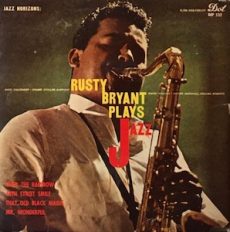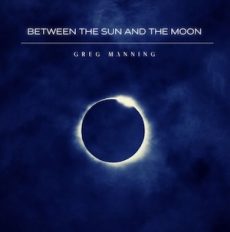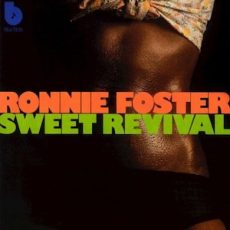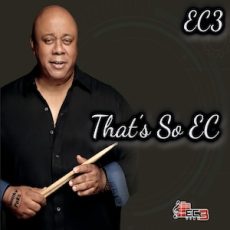
Daily Dose Of Jazz…
Rusty Bryant was born Royal Gordon Bryant on November 25, 1929 in Huntington, West Virginia and grew up in Columbus, Ohio where he became a fixture of the local jazz scene.
He worked with Tiny Grimes and Stomp Gordon before founding his own ensemble, the Carolyn Club Band in 1951. Signing with Dot Records in 1954 Rusty released several albums as a leader in the second half of the 1950s. In 1953, his live recording All Nite Long which was a faster version of Night Train, became a hit R&B single in the U.S.
With his Dot contract ending in 1957 he returned to Columbus to do mostly local engagements, playing often with pianist-organist Hank Marr and a young Nancy Wilson also sang in his group. It was not until his appearance on the 1968 Groove Holmes album That Healin’ Feelin’ that he resurfaced beyond regional acclaim, and soon after he began leading dates for Prestige Records.
Bryant recorded extensively for the label from 1969 through the middle of the 1970s, being a sideman with Ivan “Boogaloo Joe” Jones, Johnny “Hammond” Smith, Charles Kynard, and Sonny Phillips. His 1970 release Soul Liberation was his most commercially successful, reaching No. 35 on the U.S. Black Albums chart and No. 15 on the Top Jazz Albums chart.
Tenor and alto saxophonist Rusty Bryant, who recorded into the early 1980s before returning to Columbus and played mostly local dates, died on March 25, 1991.
More Posts: bandleader,history,instrumental,jazz,music,saxophone

Daily Dose Of Jazz…
Greg Manning was born on November 24, 1965 in Nigeria and raised in Zurich, Switzerland. While growing up he was mostly exposed to jazz by his parents. Yet, he discovered his deep love for music only after hearing Stevie Wonder’s Isn’t She Lovely. He started playing the piano at twelve and several years later moved to the United States to study piano and film scoring at Berklee College of Music in Boston, Massachusetts.
His big break came when asked to compose the music for Keep Cool, the most successful and longest running German musical. The musical led Manning back to Zurich where he continued to compose and produce for records and television.
Moving to Los Angeles, Calidornia in 2002 where his career took off. The three-time platinum producer for Universal Music Switzerland, and has had several Swiss Chart toppers since 1996. The former keyboardist and music director for Grammy Award-nominated artist Jonathan Butler, he has been the keyboardist for Mindi Abair, Gerald Albright, Will Downing, Richard Elliot, Brian McKnight, Chante Moore, and Kirk Whalum, among others.
Touring extensively for ten years throughout the U.S., Europe, South Africa, and the U.K., Greg made a conscious decision to come off the road. Not long thereafter, he started composing music for film and television. As an artist, his own music is the union of jazz, soul, and funk.
Pianist, composer Greg Manning, who operates in the soul jazz and smooth genres has never stopped composing and continues to record and perform.
More Posts: bandleader,composer,history,instrumental,jazz,music,piano

Daily Dose Of Jazz…
ELEW was born Eric Robert Lewis on May 13, 1973 in Camden, New Jersey where he studied piano as a child. Graduating from Overbrook High School in 1991, he received a full merit scholarship to the Manhattan School of Music. He graduated on the Dean’s List in 1995, then began touring.
Lewis began his career as a jazz purist, playing as a sideman for jazz artists like Wynton Marsalis, Cassandra Wilson, Elvin Jones, Jon Hendricks, and Roy Hargrove as well as performing as a member of the Lincoln Center Jazz Orchestra. Eventually becoming interested in rock music he embarked on a solo career as a crossover musician, quickly gaining recognition for his instrumental Rockjazz piano covers of mainstream rock hits like The Rolling Stones’ Paint It, Black and The Killers’ Mr. Brightside. He released his debut album of instrumental covers, titled ELEW Rockjazz Vol. 1, on his own label, Ninjazz Entertainment, in 2010.
Lewis became disillusioned with the jazz world after a solo record deal failed to materialize and struck out on his own to find success. It was around this time that he heard his first rock album, Linkin Park’s Meteora, which made a profound impression on his musical sensibilities. Taking the stage name ELEW, he adjusted his stage presence accordingly, growing an afro and adopting a distinctive style of dress, wearing armored vambraces over tailored suits. Discarding his piano bench for standing, he reached inside to grab the strings and beat on its wooden case like a percussion instrument.
Mainstream recognition came when he played a cover of Evanescence’s Going Under and an original composition, and was a featured speaker at the Long Beach TED Conference in 2009. He drew the interest of fashion designer Donna Karan, for whom he composed an original piece inspired by her fall 2009 collection and at her next New York City fashion show. That led to an invite by White House Social Secretary Desiree Rogers to play in the East Room for President Obama and the First Lady.
Pianist Eric Lewis, popularley known as ELEW, continues his journey of performing, composing, recording and touring.
More Posts: bandleader,history,instrumental,jazz,music,piano

Daily Dose Of Jazz…
Ronnie Foster was born in Buffalo, New York on May 12, 1950. Attracted to music at the age of four, he attended Public School 8, Woodlawn Jr. High for a year, McKinley Vocational High School for two years, and then spent his final year at Lafayette High School. The only formal musical instruction he received was a month of accordion lessons. Taking music more seriously from his early teens, he had his first professional gig aged fifteen, playing in a strip club.
He initially performed with other local musicians. Moving to New York City with his own band, he acquired a publishing company. Foster performed as a sideman with a wide range of musicians, frequently working with guitarist George Benson, including playing on the guitarist’s album Breezin’.
Ronnie has played organ with Grant Green, Grover Washington, Jr., Stanley Turrentine, Roberta Flack, Earl Klugh, Harvey Mason, Jimmy Smith, and Stevie Wonder.
He is also a record producer and his song Mystic Brew was sampled in Electric Relaxation by A Tribe Called Quest and in J. Cole’s song Forbidden Fruit, where it was reversed, pitched, and slowed down in the song Neighbors as well as the instrumental of Forbidden Fruit.
Funk and soul jazz organist Ronnie Foster continues to perform, record, tour and produce.

Daily Dose Of Jazz…
Ernest “EC3 Coleman III was born a second generation musician in Naples, Italy on February 9, 1963 to Ernest and Rebecca Coleman. His father, Ernest Jr. was a jazz musician who played tenor saxophone and was a great arranger and composer.
He studied at the Naval Conservatory of Music in Norfolk, Virginia and was awarded a special honor for being the youngest student to graduate from this conservatory. Moving to Los Angeles, California after his tour with the Navy Band, EC began his true musical quest performing for Guys & Dolls, Ain’t Misbehavin, and A Chorus Line.
Getting the call to work with Loretta Holloway in Las Vegas, Nevada he opened for Jay Leno, Bill Cosby, David Brenner, Yakov Smirnoff, Whoopi Goldberg, Don Rickles and many many more. Coleman took over as Loretta’s musical director and traveled around the world. For twelve years.
He eventually got called to play with jazz bassist Al McKibbon. Excited to get the call, he auditioned and got booked for The Bourbon Street Review show. For three years this was his training ground. Al being like a second father to him, they lived together for many years and this was where he attained most of his great knowledge of music.
When the show closed Billy Higgins was there to offer EC work with saxophonist Azar Lawrence and for the next year and a half they were on the road. A move to Las Vegas, Nevada saw him working with Frank Sinatra’s pianist and conductor Vincent Falcone. Meeting jazz pianist Kevin Toney led him to play with Kevin bassist Brad Bobo.
He went on to work with Kenny Burrell, Russell Malone, Lorendo Alameida, Lorez Alexandria, John Clayton, George Cables, Herman Riley, Charlie Owens, Frank Sinatra, Vic Damone, Diahann Carroll, Pudgy, and the orchestras of Caesar Palace, Harrah’s Tahoe and Reno, and The Las Vegas Symphony.
Since then he embarked on a solo career as a leader, recording eight albums and producing thirteen records for Misha, Wendy C, Wendy B, Rayshun Lamarr, Zac Williams, Fabian, and Troy “Sol” Edler.
Drummer, producer and bandleader Ernest “EC3” Coleman continues to expand the language of his musical talent.
More Posts: bandleader,drums,history,instrumental,jazz,music,producer




